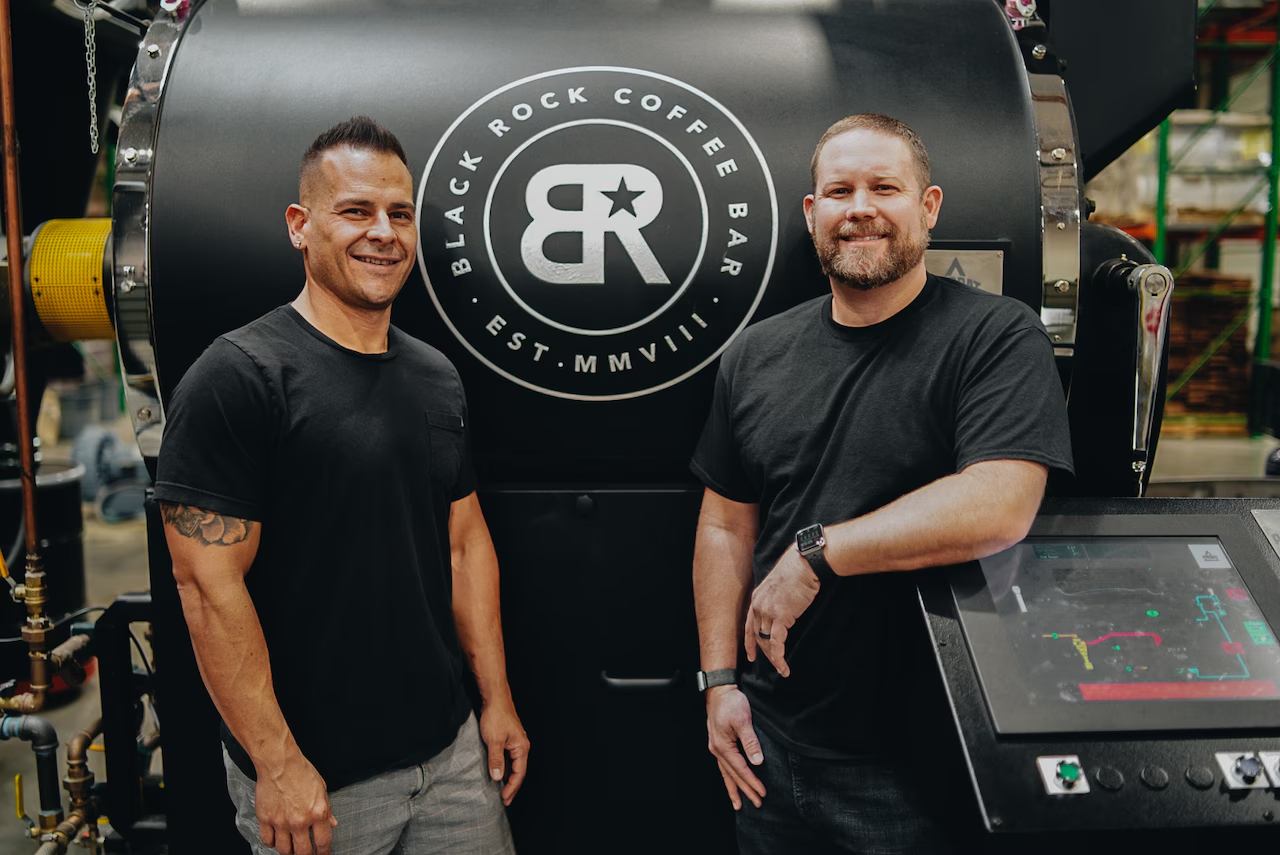PORTLAND, Ore. — For many people, coffee is simply fuel to start the day. But Black Rock Coffee Bar sees it as much more — an opportunity to create lasting connections with customers across different moments of their lives. The Oregon-born chain is expanding rapidly, positioning itself as a brand for a slightly older, more established audience in an increasingly competitive coffee market.
Beyond the Morning Rush
While mornings remain critical for coffee shops, Black Rock’s busiest hours actually come between 9 a.m. and noon, after the workday has already started. Saturdays are its single biggest sales day.
“One person comes in on their way to work, one might come in bringing the kids, and then they come in as a family on the weekends,” said co-founder Daniel Brand, who launched the chain 17 years ago with a single drive-thru in Aloha, Oregon.
Also Read
This diverse traffic pattern is central to Black Rock’s strategy: creating multiple touchpoints throughout the week and offering an experience that appeals to both individuals and families.
Rapid Expansion and Investor Confidence
From that first drive-thru, Black Rock has grown to 158 locations across seven states. The company’s sales reached $160 million last year, and leadership has set an ambitious target of expanding store count by 20% annually.
Its growth strategy received a major boost last week with an initial public offering that raised nearly $300 million and valued the company at more than $1 billion. Shares now trade on the Nasdaq under the ticker symbol BRCB, reflecting investor confidence in the chain’s potential despite steep competition.
Like many young, fast-growing businesses, Black Rock is not yet profitable, reporting a $7 million loss last year. Still, executives say that reinvestment in growth is part of the long-term plan.
Competing in a Crowded Market
The company enters a coffee landscape dominated by Starbucks and increasingly challenged by Dutch Bros, another Oregon-founded brand that now operates more than 1,000 stores. Dutch Bros has built its reputation around younger customers and energy-infused cold drinks.
Black Rock, however, is betting on a different demographic. Hot coffee remains its top seller, and nearly half its customers are between 35 and 54 years old. About two-thirds earn over $100,000 annually, a consumer base that offers both stability and higher purchasing power.
“I think that’d be a fair assessment for someone to make,” said co-founder Jeff Hernandez, describing Black Rock’s slightly “grown-up” positioning.
Flexible Formats and Offerings
One of Black Rock’s biggest lessons in its early years, Hernandez said, was adaptability.
“You want to come through the drive-thru, great. If you want a lobby and a more personalized homey experience, that’s great,” he explained.
The company now operates both compact suburban drive-thrus and full-service cafés with seating, tailoring its design to local markets. That flexibility allows it to cater to quick commuters as well as customers seeking a more relaxed, social coffeehouse environment.
From Oregon Roots to Southwest Growth
Although Black Rock’s roots are firmly in Oregon, its most aggressive expansion has been in the Southwest. More than half of its locations are in Texas and Arizona, and the company has shifted its headquarters to the Phoenix suburbs, where Brand now resides.
Still, Oregon remains an important market, with 34 stores in the state, a roastery in Vancouver, Washington, and finance leadership based in Lake Oswego. Hernandez continues to live in Bend.
Following Dutch Bros’ Path?
The company’s trajectory naturally invites comparisons to Dutch Bros, which has scaled much faster and now generates more than $1 billion in annual revenue. Dutch Bros also moved its headquarters to the Phoenix area earlier this year, underscoring Arizona’s growing importance in the coffee industry.
Black Rock’s founders, however, stress that their focus is on building a brand with its own distinct identity. The name itself — inspired by a beach in Maui — was originally chosen for no specific reason. Over time, Hernandez said, it has taken on meaning as the chain carved out its place in the market.
“We just wanted to kind of do something different, and, if we were successful, give it meaning,” Hernandez said.
Looking Ahead
As Black Rock prepares for its next phase of growth, it will continue balancing expansion with customer loyalty. By targeting a slightly older demographic, offering flexible store models, and leaning into the cultural power of coffee as more than just caffeine, the chain hopes to solidify itself as a billion-dollar brand with staying power.












